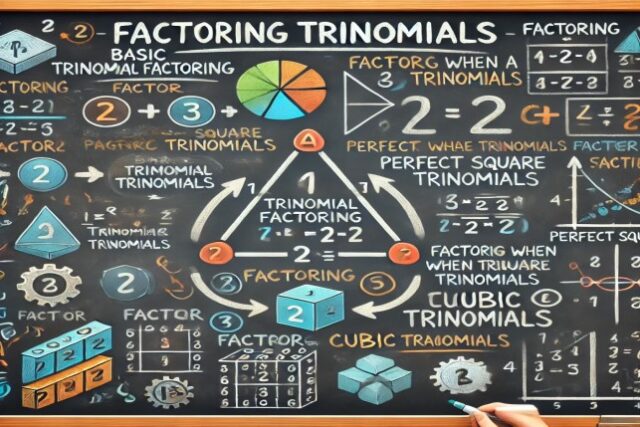Organizing or attending a conference can be exciting, but ensuring you’re on the right timeline can make or break your experience. Double-checking conference dates is an essential part of the preparation that prevents unexpected issues, such as arriving on the wrong day or missing deadlines for registration. This guide will provide a comprehensive approach to double-checking conference dates, helping you stay organized, avoid stress, and make the most out of your conference experience.
Why Double-Checking Conference Dates is Essential
Conferences bring together professionals, academics, and enthusiasts from various fields to share knowledge, network, and collaborate. However, one of the most common issues participants face is incorrect scheduling or missing key dates due to oversight. Double-checking conference dates isn’t just a simple formality; it’s a critical step to ensure:
- On-time attendance: Missing even a single day can result in lost opportunities.
- Proper planning: Arriving on the correct day lets you plan your itinerary efficiently.
- Maximizing investment: Conferences are often expensive, so ensuring correct dates helps you get full value.
Common Pitfalls of Not Verifying Conference Dates
Failing to verify conference dates can lead to various pitfalls, from logistical nightmares to financial losses. Here are some of the most common issues:
- Arriving on the Wrong Day
This might sound unlikely, but with so many details to manage, many attendees mistakenly show up on the wrong date. - Missed Deadlines for Registration
Most conferences have strict registration deadlines, often with different price tiers depending on how early you register. - Double-Booking or Schedule Clashes
If you’re juggling multiple events or travel arrangements, an incorrect date can lead to unfortunate scheduling conflicts. - Incomplete Travel Arrangements
Incorrect dates can disrupt flights, hotel bookings, and other travel arrangements, resulting in costly changes or cancellations.
How to Double Check Conference Dates Effectively
1. Verify on the Official Conference Website
The most reliable source for conference dates is always the official website. Organizers update information regularly, and any changes to the schedule will appear here first.
2. Confirm with Emails and Notifications
Most conferences send confirmation emails upon registration. If there’s any change, it will likely be communicated via email.
3. Use Calendar Alerts
Once you’ve confirmed the dates, add them to your calendar with multiple reminders. Consider adding notifications for deadlines, such as registration cut-offs and key event days.
4. Check with Colleagues or Fellow Attendees
If you’re attending with colleagues or friends, confirm the dates with each other. A quick cross-check can save you from potential errors.
5. Monitor Social Media Updates
Many conferences actively update their social media accounts, especially if there’s a last-minute change.
6. Revisit Travel and Accommodation Bookings
Check the dates on your flight, hotel, and other bookings to ensure they match the conference schedule. A quick recheck can reveal discrepancies.
Important Dates to Double Check Before Attending
1. Registration Deadlines
Most conferences have an early-bird registration period, often with discounted prices, followed by regular and last-minute registration periods.
2. Abstract or Paper Submission Deadlines
If you’re presenting, check submission deadlines for abstracts, full papers, or other required materials.
3. Keynote and Workshop Dates
Conference schedules often have main events spread across different days. Confirm the dates of keynote speeches, workshops, or other significant sessions you don’t want to miss.
4. Social Events and Networking Sessions
Many conferences offer networking events that are great for meeting peers. These are often optional but valuable for building connections.
Tools to Help You Keep Track of Conference Dates
With so many tools available today, keeping track of conference dates has never been easier. Here are some popular options:
- Google Calendar or Outlook Both platforms allow you to set reminders, create event categories, and even invite other attendees to your scheduled dates.
- Eventbrite or Similar Apps Many conferences use Eventbrite or other ticketing platforms that integrate with calendars and provide notifications.
- Project Management Tools Tools like Trello or Asana can help you organize deadlines, to-do lists, and other important conference details.
- Travel Apps Apps like TripIt organize your flights, hotel bookings, and event details in one place, with reminders for each.
How to Avoid Last-Minute Surprises
1. Plan Ahead with a Timeline
Set a timeline to help you track and complete key tasks before the conference. This timeline could include booking travel, preparing presentations, and scheduling meetings with colleagues.
2. Communicate with the Organizers
If you’re uncertain about any dates, reach out to the event organizers. They can clarify any doubts, particularly about key deadlines.
3. Check for Virtual or Hybrid Options
Many conferences now offer virtual or hybrid attendance options. Confirm the dates and times for these formats, as they may differ.
4. Review the Conference’s Cancellation Policy
Ensure you know the policy for refunds or date changes, especially if attending requires substantial travel.
5. Have a Backup Plan
In case of an emergency or last-minute issue, having a backup plan for travel or accommodation can minimize disruption.
Tips for Staying Organized Leading Up to the Conference
- Create a Conference Checklist List all the items you need, from travel documents to presentation materials. This checklist will ensure you don’t miss anything critical.
- Pack Strategically Make sure your luggage includes everything you need, from business cards to presentation tools. Being well-packed prevents unnecessary stress on the day of the event.
- Practice Your Presentation If you’re presenting, practice in advance to refine your delivery. Rehearsing reduces anxiety and helps you feel prepared.
- Set Up a Follow-Up Strategy Conferences are all about networking. Set a reminder to follow up with contacts you meet during the event.
Final Thoughts: The Importance of Being Prepared
Double-checking conference dates may seem like a minor detail, but it can be the difference between a smooth experience and a stressful one. It’s a simple but crucial step in ensuring you maximize your conference experience. Whether you’re an attendee or a presenter, having accurate information and organized plans will allow you to make the most out of each conference opportunity.
By using the strategies outlined above and taking advantage of available tools, you’ll be well-prepared to attend any conference with confidence. Remember, a little extra preparation goes a long way in making your conference experience productive, enjoyable, and memorable.



MOST COMMENTED
Business
World Politics News: Geopolitical Analysis for Strategic Decision-Makers
Business
World News Headlines: Global Developments Impacting Business and Policy
Business
Top World News Stories: What’s Shaping the Globe Today?
World News
Global News Updates: Stay Informed with Key Events
Crypto
“Current World News: Major Stories of 2025”
Crypto
Be1crypto.com Markets is a cryptocurrency trading platform designed to cater to both novice and experienced traders. It offers a user-friendly interface, a wide range of supported cryptocurrencies, advanced trading tools, and robust security measures. The platform aims to provide a seamless trading experience, allowing users to diversify their portfolios and engage in various trading activities.
World News
Chrisley Knows Best Daughter Dies: Unraveling the Truth Behind the Rumors